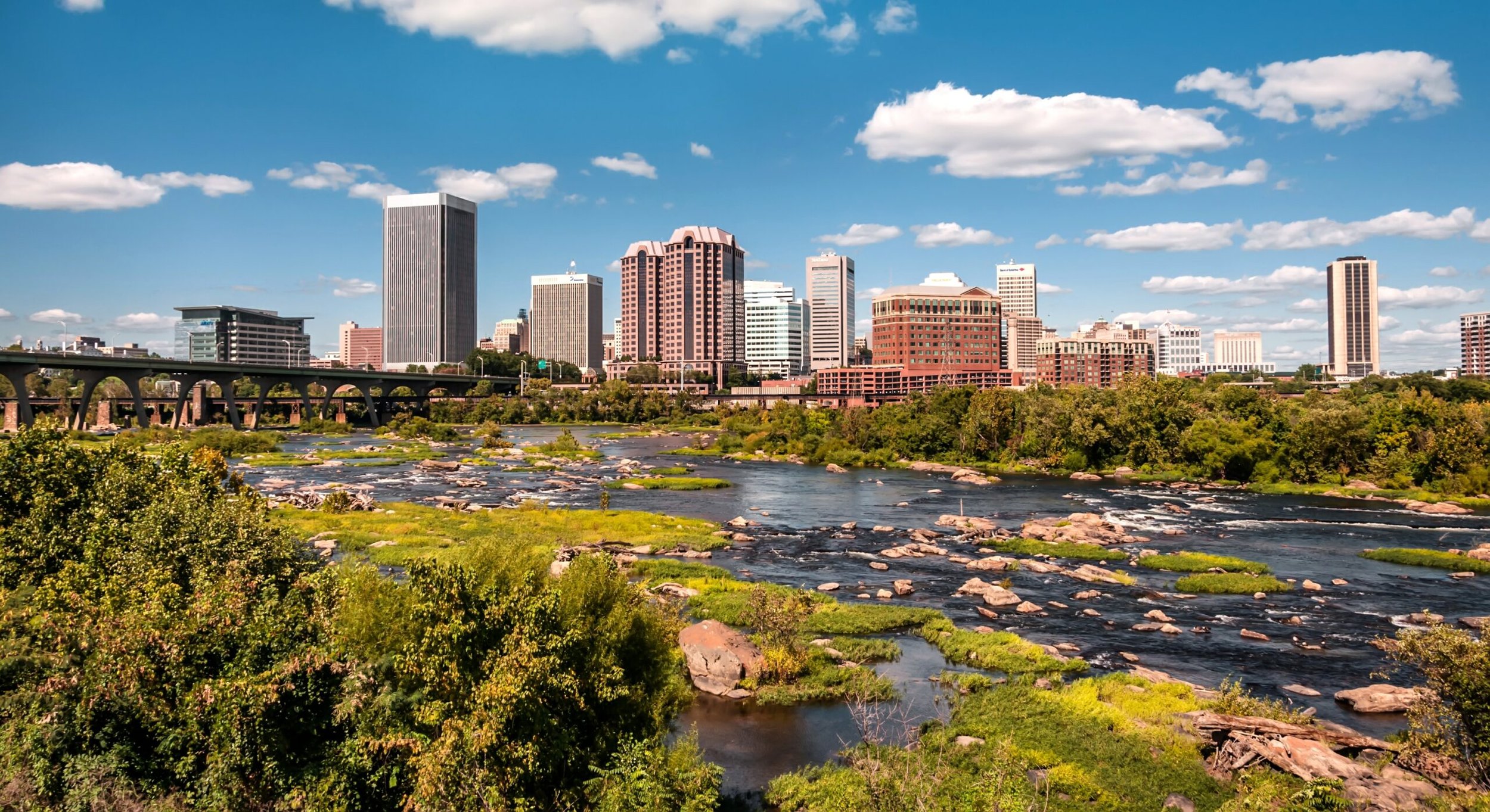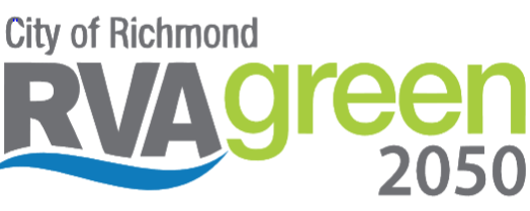
Environment
Richmond, Virginia's high pollen levels are exacerbated by factors such as the presence of invasive plant species and monoculture landscapes, highlighting the need for a comprehensive understanding of our local ecosystem. This guide serves as a starting point for your sustainability efforts while connecting you with everything from national initiatives to local tree planting efforts, empowering you to take meaningful action at any level.
Where to Start
-
A simple way to help the environment is to start a garden, focusing on native plants to attract pollinators like bees and butterflies, which are vital for healthy habitats. Whether you have a small space or a large yard, you can make a difference by following a guide on how to build a pollinator garden. It's important to learn to identify native plants and remove any invasive species that might harm the local ecosystem and pollinators. By planting native and removing invasives, you'll directly support a thriving local environment.
-
A simple way to start protecting the environment is by engaging with your local community parks. Participate in trash cleanups and help remove invasive species to keep these spaces healthy and enjoyable. Explore RVA volunteer opportunities to get involved in the upkeep of these parks, working alongside Parks and Rec and other community members to ensure they are well-maintained. You can also advocate for new park projects and greener improvements to enhance these vital community resources.
-
Taking your commitment to environmental protection to the next level involves deeper engagement and specialized knowledge. Becoming a Richmond Tree Steward offers a fantastic opportunity to actively contribute to the health and vitality of our local urban and rural forests. As trained community volunteers, Tree Stewards play a crucial role in promoting healthy forests through training classes, educational programs, and hands-on projects within the community. By sharing your knowledge and passion, you'll increase public awareness of the invaluable benefits of trees and teach practical skills in tree care, directly contributing to a greener and more sustainable Richmond.
Volunteers plant trees during Richmond Tree Week 2023. Source
Build your Toolbox
-
How to plant seeds: Indoors and Outdoors
Southside ReLeaf (Tree Planting Guide): A Richmond-based non-profit focused on increasing the tree canopy in Southside Richmond through tree planting, education, and advocacy, often targeting areas with low tree cover (which also helps combat urban heat island effects).
U.S. Forest Service: See how the USFS answers “Why Garden with Native Wildflowers?” When you decide to make a native garden of your own follow their helpful Native Garden Instructions to make sure your garden Blooms!
Plant Virginia Natives: A statewide initiative providing resources on native plants, including regional guides, how-to's, and lists of native plant retailers. Essential for understanding what plants are best suited for the Virginia Piedmont region.
City of Richmond Urban Forestry Division: Provides information on the city's tree care, urban forest master plan, and programs for residents regarding street trees or tree giveaways.
Virginia Department of Forestry (DOF): Offers technical assistance, cost-share programs, and information on tree planting, forest health, and riparian buffer restoration across the state.
-
Richmond Department of Public Utilities (DPU) - Clean City Commission: Provides information on residential trash and recycling, as well as resources for disposing of specific items like household hazardous waste (HHW). Proper HHW disposal is crucial to prevent soil and water contamination.
Virginia Department of Environmental Quality (DEQ) - Waste Management: Offers statewide information on solid waste and hazardous waste management, including guidance relevant to residents.
Virginia Cooperative Extension - Horticulture: Provides research-based information on gardening practices, including integrated pest management (IPM) and sustainable lawn care, which emphasize reducing chemical use. Search specifically for Henrico or Chesterfield County Extension offices for local contacts.
Beyond Pesticides: A national non-profit offering extensive resources on the dangers of pesticides and promoting organic alternatives for pest and weed control.
-
RVA H2O (City of Richmond Department of Public Utilities - Stormwater Division): Focuses on Richmond's stormwater system, pollution prevention, green infrastructure projects, and public education about protecting local waterways. Their website often includes data and ways to get involved.
James River Association (JRA): A major regional non-profit dedicated to protecting and restoring the James River. They offer educational programs, advocacy opportunities, and hands-on restoration and cleanup events.
Virginia Department of Environmental Quality (DEQ) - Water: Provides information on water quality monitoring, regulations, and programs for protecting Virginia's rivers, streams, and the Chesapeake Bay.
Virginia Cooperative Extension - Water Quality: Offers resources on topics like well water testing, septic system maintenance, and implementing practices like rain gardens or conservation landscaping to protect water resources on your property.
-
Chesapeake Bay Foundation Health Index:Save the Bay®, and keep it saved, as defined by reaching a 70 on CBF's Health Index. For more than 50 years, they have fought vigilantly for healthy rivers, clean streams, and a saved Chesapeake Bay
Chesapeake Bay and Watershed Scorecard: This report card provides a transparent, timely, and geographically detailed assessment of Chesapeake Bay through publicly available data.
U.S. Climate Resilience Toolkit: A federal resource providing scientific data, tools, and expertise to help communities understand and address climate risks, including resources relevant to extreme heat (Urban Heat Islands), flooding, and other local impacts.
RVA H2O Data: As mentioned before, RVA H2O often provides data related to stormwater projects, water quality monitoring, and infrastructure that can help residents understand local water issues.
EPA AirNow: Provides real-time air quality data based on your location, helping residents understand local air pollution levels.
Virginia DEQ Environmental Data: The state DEQ website offers access to various environmental data, including water quality monitoring results, air quality reports, and information on permitted facilities.
Citizen Science Platforms (e.g., iNaturalist, Audubon Bird Counts): While not Richmond-specific data hubs, platforms like iNaturalist allow residents to document local biodiversity (plants, insects, birds), contributing to scientific understanding and providing data on the health of local ecosystems. Local Audubon chapters often organize bird counts that track bird populations as indicators of environmental health.
-
Richmond City Council / Planning Commission: Resources for understanding local environmental policies being considered, attending public meetings, and contacting representatives to advocate for environmental issues.
Neighborhood Civic Associations: Many neighborhood groups take on local environmental projects, such as maintaining community gardens, organizing local cleanups, or advocating for green space. Connecting with local associations can reveal hyper-local opportunities.
Community Foundation: Not all organization can be listed, but many local environmental organizations post volunteer opportunities through Community Foundation. Checkout their website for any upcoming volunteer events you may be interested in.
Southside ReLeaf: Offers regular volunteer opportunities for tree planting and tree care events.
James River Association (JRA): Organizes numerous volunteer events, including river cleanups, planting days, and events at their Capital Region location.
Capital Trees: A Richmond non-profit focused on enhancing the city's urban landscape through the planting and care of trees and gardens, often involving volunteer efforts.
Keep Virginia Beautiful / Keep Richmond Beautiful: State and local chapters often organize litter cleanups and other beautification/environmental events.
Installing rain barrels could make your home eligible for a stormwater utility credit. Source
Sustainability Guide Resources









